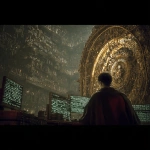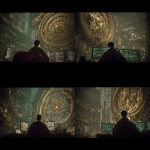Explore the Best AI Image Gallery

The AI Lens: Reshaping Product Photography
Product photography, the art of capturing captivating visuals of merchandise, has always been crucial for e-commerce and brand marketing. Now, artificial intelligence (AI) is entering the frame, poised to revolutionize this field with its ability to automate tasks, enhance aesthetics, and offer unprecedented creative control. From generating realistic product mockups to personalizing shots for individual customers, AI is reshaping the landscape of product photography in profound ways.
The Creative Canvas: Unleashing New Possibilities
AI-powered tools are empowering photographers and designers to push creative boundaries.
- Generative AI for Product Visualization: Imagine creating stunning visuals of products that dont yet exist! Generative AI algorithms can produce realistic 3D models and renderings from textual descriptions, allowing businesses to showcase conceptual designs or variations before physical prototypes are even created.
- Style Transfer and Image Editing: AI can analyze an existing product photo and apply artistic styles, filters, or textures, transforming a standard shot into a unique and eye-catching visual. This opens up exciting possibilities for creating themed campaigns or personalized branding elements.
- Automated Background Removal and Enhancement: Time-consuming tasks like removing backgrounds from product photos can be automated with AI, streamlining the editing process and freeing up photographers to focus on creative aspects.
Boosting Efficiency and Scale
AIs impact extends beyond creativity; its also revolutionizing efficiency in product photography:
- High-Volume Production: AI can handle large batches of product images, automatically capturing, editing, and optimizing shots at a significantly faster rate than manual processes.
- Consistency and Quality Control: AI algorithms can ensure consistent lighting, composition, and image quality across all product photos, maintaining brand standards and reducing errors.
- Data-Driven Insights: AI can analyze customer preferences and purchase trends from product photo data, providing valuable insights for marketing strategies and product development.
Ethical Considerations: Navigating the New Terrain
As with any powerful technology, AI in product photography raises important ethical considerations:
- Transparency and Authenticity: Its crucial to be transparent about the use of AI in creating product visuals. Consumers have a right to know if an image has been significantly altered by AI, and brands should avoid misleading representations.
- Bias and Representation: AI algorithms can inherit biases from the data they are trained on, potentially leading to unrealistic or discriminatory representations in product photography. Its essential to address these biases through diverse training datasets and ongoing monitoring.
- Job Displacement: While AI can automate tasks, its important to consider the potential impact on human photographers and designers. Retraining and upskilling programs may be necessary to ensure a smooth transition in the workforce.
The Future is Intelligent
The convergence of AI and product photography is only beginning. We can expect even more innovative applications in the future:
- Personalized Product Shots: Imagine AI generating custom product photos tailored to individual customer preferences, showcasing variations in color, style, or accessories.
- Interactive Product Experiences: AI could power interactive product visualizations that allow customers to explore products from different angles, zoom in on details, or even simulate how a product would look in their own environment.
- AI-Assisted Storytelling: Product photography can evolve beyond static images to become immersive storytelling experiences, guided by AI algorithms that curate dynamic narratives around products and brands.
The integration of AI into product photography is reshaping the creative industry, offering exciting possibilities for enhanced creativity, efficiency, and customer engagement. By embracing these advancements while addressing ethical considerations, we can unlock a future where AI empowers both businesses and consumers in the realm of product visualization.








](https://images.ai-img.art/thumbnails/150/24ccaad8968bce75611aa4ff739695d61b7d06bd128d44cfbb3a6c46be30ed33.webp)








](https://images.ai-img.art/thumbnails/150/7889b264cc5c27f6b7a00af1767a689c9df2b49d36667764d8322ae0c0fed64a.webp)



](https://images.ai-img.art/thumbnails/150/69daab74527edc292198788487e2d0d5f1bb1aba897d85b79ff4015ea305631d.webp)
















](https://images.ai-img.art/thumbnails/150/0d2c5ff24ca9024b95b5f0d1d0e673146e5dd5f31c7b3a7092322afe4a3c46eb.webp)







](https://images.ai-img.art/thumbnails/150/8fd5788e152269ccc7eeb4a5287499cc5f55ca46d75afc237030f50a1b60c6ca.webp)

](https://images.ai-img.art/thumbnails/150/786d3898a4574da9c53e922bd2a30035084a90a9a6f5cc6bee514d0150ba3403.webp)
